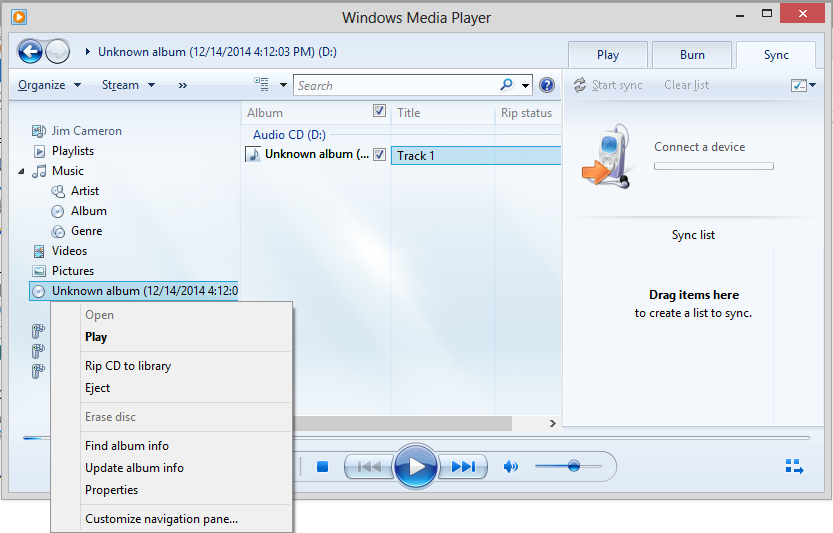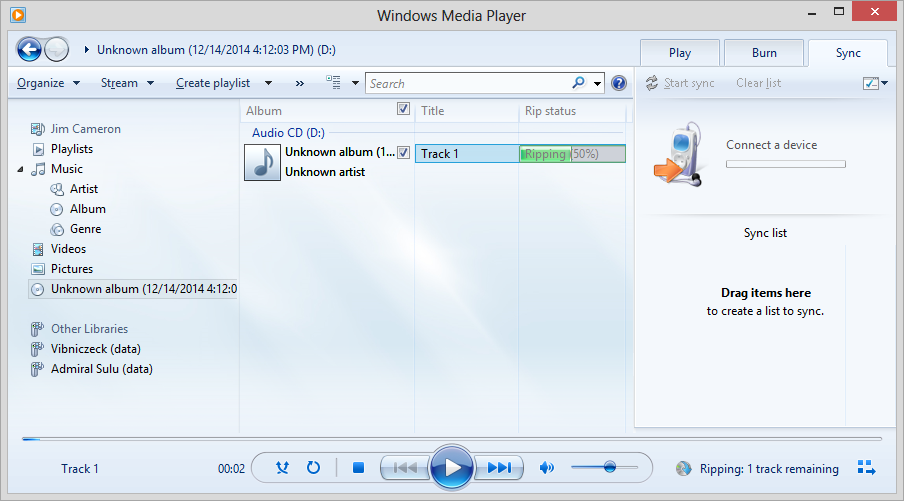Determining the accounts in the administrators group form a command prompt
To determine the accounts in the administrators group for a Microsoft
Windows system, you can use the command
net localgroup administrators
C:\Users\Administrator>net localgroup administrators
Alias name administrators
Comment Administrators have complete and unrestricted access to the computer/domain
Members
-------------------------------------------------------------------------------
Administrator
JDoe
mayberry\Administrator
mayberry\Domain Admins
SvcCOPSSH
The command completed successfully.
[/os/windows/commands]
permanent link
Copssh Connection Issues
When I tried connecting to a Windows 7 Professional system running Copssh 5.0.1 from
PuTTY
0.58 on a Windows Small Business Server (SBS) 2003 system, a "PuTTY Fatal Error"
window appeared with the message "Couldn't agree a client-to-server cipher
(available: aes128ctr,aes192-ctr,aes256-ctr,aes128-gcm@openssh.com,aes256-gcm@openssh.com,chacha20-poly1305@openssh.com)".
I tried connecting from the same system with an OpenSSH_3.8.1p1 SSH client
that is part of
OpenSSH for
Windows and received the message "no kex alg", which may mean "no
key-exchange algorithm". When I tried specifying the encryption cipher using
the OpenSSH client, I received an error message similar to the one I saw
with PuTTY.
C:\Program Files\SSH\OpenSSH\bin>ssh -c 3des jdoe@192.168.0.15
no matching cipher found: client 3des-cbc server aes128-ctr,aes192-ctr,aes256-ctr,aes128-gcm@openssh.com,aes256-gcm@openssh.com,chacha20-poly1305@openssh.com
C:\Program Files\SSH\OpenSSH\bin>ssh -c blowfish jdoe@192.168.0.15
no matching cipher found: client blowfish-cbc server aes128-ctr,aes192-ctr,aes256-ctr,aes128-gcm@openssh.com,aes256-gcm@openssh.com,chacha20-poly1305@openssh.com
When I tried connecting from the SBS 2003 system to another system, to
which I could successfully connect with the OpenSSH SSH client, when I
specified the -v option for debugging output with ssh -v
jdoe@example.com, I saw the following:
debug1: Remote protocol version 2.0, remote software version OpenSSH_6.4
debug1: match: OpenSSH_6.4 pat OpenSSH*
debug1: Enabling compatibility mode for protocol 2.0
debug1: Local version string SSH-2.0-OpenSSH_3.8.1p1
debug1: SSH2_MSG_KEXINIT sent
debug1: SSH2_MSG_KEXINIT received
debug1: kex: server->client aes128-cbc hmac-md5 none
debug1: kex: client->server aes128-cbc hmac-md5 none
I upgraded PuTTY on the client system from version 0.58 to 0.63. I then no
longer received the message about no matching cipher being found, but, instead
saw another "PuTTY Fatal Error" window open, this time with the message
"Network error: Software caused connection abort". I saw the same error
message when I used PuTTY's plink utility from the command line.
C:\Program Files\Network\SSH\PuTTY>plink -ssh jdoe@192.168.0.15
Using username "jdoe".
jdoe@192.168.0.15's password:
FATAL ERROR: Network error: Software caused connection abort
I installed Bitvise
SSH Client (Tunnelier) 6.08 and tried connecting with
that client. Like with PuTTY, after I authenticated with the SSH server, I
was immediately disconnected. I saw the following from Tunnelier:
First key exchange completed using ecdh-sha2/nistp521. Session encryption:
aes256-ctr, MAC: hmac-sha2-256, compression: none.
Attempting password authentication.
Authentication completed.
The SSH2 session has terminated with error. Reason: FlowSocketReader: Error
receiving bytes. Windows error 10054: An existing connection was forcibly closed
by the remote host.
When I was able later to connect to the system running Copssh via
RDP for
troubleshooting after the user had left for the day, I
checked its status log, which you can do on a Windows 7 system by the following
steps:
- Click on Start.
- Select All Programs.
- Select Copssh.
- Select Copssh Control Panel.
- Under the Status tab, you will see
an icon that looks like a piece of paper with one edge folded down. You
may also see something like "6 events last 15 minutes" next to it.
Double-click on that icon.

When I checked the log, I saw many "fatal: mm_request_receive: read: Connection reset by peer" messages. There was a "Received SIGHUP; restarting" entry
hours later.
2014.12.12 23:26:23 - Received SIGHUP; restarting.
2014.12.12 18:30:02 - fatal: mm_request_receive: read: Connection reset by peer
Seeing that, I tried establishing a connection with PuTTY again
and was then able to log in by SSH successfully.
But then when I tried logging in remotely by SSH two days later the problem
was back. I restarted the service within the Copssh Control Panel by clicking
on the green button next to "Service is running" to stop the service. When
the button turned red, I clicked on it again to restart the service, but that
didn't resolve the problem; I still got the "Network error: Software
caused connection abort" message when I tried connecting via PuTTY 0.63 and
I saw the "fatal: mm_request_receive: read: Connection reset by peer" message
in the Copssh log for evey connection attempt. Though I didn't expect it
to resolve the problem, I tried the "net stop" and "net start" commands from
a command prompt.
C:\Users\Administrator>net stop "OpenSSH SSHD"
The Openssh SSHD service is stopping.
The Openssh SSHD service was stopped successfully.
C:\Users\Administrator>net start "OpenSSH SSHD"
The Openssh SSHD service is starting.
The Openssh SSHD service was started successfully.
But that did work. I was then able to successfully log into the system
via SSH.
[/os/windows/network/ssh/copssh]
permanent link
Ripping a CD with Microsoft Windows Media Player 12
To rip a CD to the music libary stored on your system, i.e., to copy the music
from the CD to the hard drive on a Windows sytem, using Windows Media Player
12, take the following steps:
-
Insert the CD in the CD/DVD drive in the system.
-
Start the Windows Media Player application.
-
On the left pane of the Windows Media Player window, navigate
to the location of the CD/DVD drive, which should be displaying the
album as shown below where the album is identified as "unknown album"

-
Right-click on the CD in the left pane of the window and choose "Rip CD to
library. As the CD is "ripped", you should see the status displayed
under "Rip status" near the top of the window; status information is
also displayed in the lower, right-hand side of the window.

The status under "Rip status" should change to "Ripped to library" at
the completion of the rip process.
On a Microsoft Windows 7 system, you should then see the name of the
album in your music folder under Libraries\Music or
C:\Users\Username\Music\, where Username is
the name for the account under which you logged into the system, if you
look for it using the Windows Explorer. If the
album/artist could not be identified by Windows Media Player, you may
see an "Unknown artist" folder with an "Unknown album" folder within it.
From the Windows Explorer, you can right-click on the folder names and
change them, if you wish.
[/os/windows/software/audio-video/WMP]
permanent link




